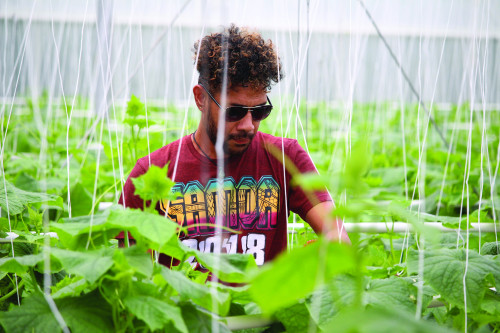New training programmes for indoor crop production
1 November 2023
New Primary ITO | Te Pūkenga training programmes for Indoor Crop Production provide essential knowledge on water conservation, weather prediction, and environmental risk management, as climate change becomes an increasing focus for all.
 Developed with industry input, the training programmes include new topics, core knowledge, and some optional modules, so the training can be adapted to suit individual operations.
Developed with industry input, the training programmes include new topics, core knowledge, and some optional modules, so the training can be adapted to suit individual operations.
The New Zealand Certificate in Horticulture Production – Indoor Crop Production Level 3 is suitable for someone with around one year’s industry experience and takes 13 months to complete. The programme includes new topics on weather prediction and micro-climate characteristics for indoor crop production, and weed identification and control.
Other core topics include plant knowledge and care, pest and disease control, knowledge of pruning, and the safe use of agrichemicals.
The Level 4 programme is the next step for someone with a few years’ experience. New topics include using information technology and systems to help with decision making, water conservation, and identifying and managing environmental risks in a horticulture operation. Other core topics include monitoring crop production, managing production goals, and communications skills for supervising a team.
“The Level 4 programme provides more critical thinking about why things are done a certain way, with a focus on knowledge needed for decision making in the indoor crop production space,” Hamish says.
Learners participate in a small number of off job training days, depending on the learning modules selected.
The Level 3 and Level 4 programmes can also be combined and completed as an apprenticeship.
“Our Training Advisers are happy to come and discuss these programmes with you, to give you a full understanding of how they work and what’s involved,” Hamish says.
For more information on these programmes, get in touch with your local Training Adviser by filling in the form below.
